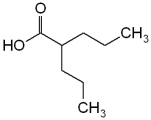Patients with brain tumors are at increased risk for seizures. Antiepileptic drugs to prevent seizures in patients with a brain tumor is controversial, however. Although the American Academy of Neurology advises against the routine use of prophylactic antiepileptics, some physicians believe the therapy can be beneficial to patients with brain tumor. Sirven and associates conducted a systematic review of published studies to determine the efficacy of prophylactic antiepileptic therapy in patients with brain tumors who had no history of seizures.
The authors reviewed five trials from 474 potentially relevant studies. Inclusion criteria were patients with brain tumors without history of seizures who were randomized to receive antiepileptic therapy (phenytoin [Dilantin], phenobarbital, and valproic acid [Depakene]) or placebo. The duration of follow-up varied from about one week to one year. Three studies included patients who received neurosurgery at the time of antiepileptic treatment.
Antiepileptic prophylaxis did not prevent seizures in surgical or nonsurgical patients after the first week of intervention and had no effect at the six-month follow-up. These results remained the same regardless of tumor type or antiepileptic drug used. The authors conclude that antiepileptics may not prevent seizures related to brain tumors. They postulate three reasons for these results: (1) there is a mismatch between antiepileptic mechanisms and tumor-related seizure activity; (2) the seizures may be caused by tumor progression, which is refractory to antiepileptics; and (3) drug interactions or reduced plasma protein levels cause insufficient serum antiepileptic concentrations. The authors state that additional trials are needed to determine the efficacy of newer anti-epileptic drugs and other treatment interventions. In the meantime, they recommend that physicians be educated on the lack of evidence supporting antiepileptic treatment to prevent brain tumor-related seizures.
ROXANA DIBA, M.D.
Sirven JI, et al. Seizure prophylaxis in patients with brain tumors: a meta-analysis. Mayo Clin Proc December 2004;79:1489-94.
COPYRIGHT 2005 American Academy of Family Physicians
COPYRIGHT 2005 Gale Group



